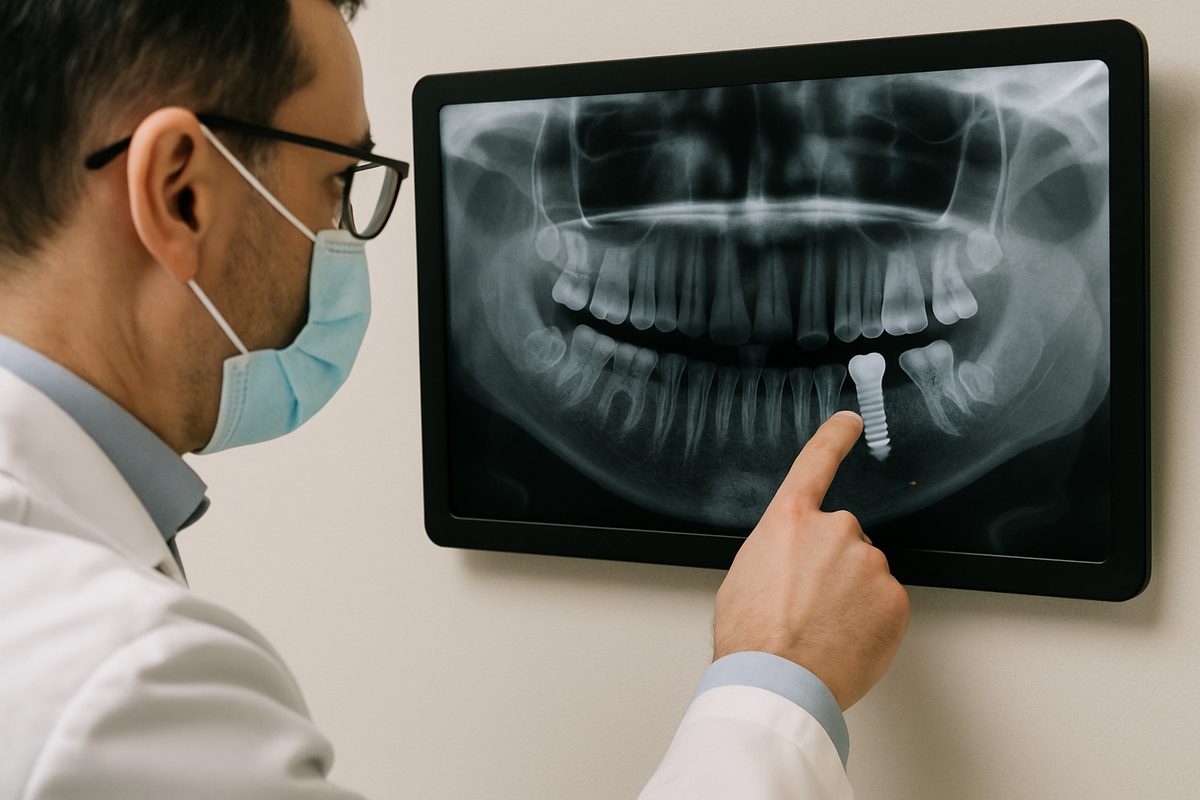Knowing the early signs of tooth implant issues can save your implant, your bone, and your comfort. This post explains the most common problems, what causes them, how to prevent them at home, and when to seek urgent care. You’ll also read practical steps your dentist may take to treat problems and how to choose the right provider if you need help with tooth implant issues in Port Orange, FL.
Common Tooth Implant Issues
Peri-implantitis and infection
Peri-implantitis is an infection and inflammation around the implant. Watch for redness, swelling, bleeding when brushing, persistent bad taste, or pus. Infections can eat away at the supporting bone; early treatment with cleaning, improved home care, and sometimes antibiotics or surgery can stop further bone loss.
Loose or failing implants
A mobile implant is different from a loose crown. Implants can fail if osseointegration (bone bonding) doesn’t occur or if the implant is overloaded by bite forces. Signs include movement, discomfort when chewing, or a change in how the implant feels. Treatment ranges from occlusal adjustment to removing and replacing the implant.
Nerve pain and numbness
Tingling, numbness, or sharp shooting pain after implant placement may mean a nerve was irritated or impinged. This is urgent; if you have altered sensation in your lip, chin, or tongue, contact your dentist right away for assessment and imaging.
Sinus problems from upper implants
Upper implants near the sinus can cause sinusitis or an opening into the sinus (oroantral communication). Symptoms include sinus pressure, fluid coming from the nose after drinking, or recurrent sinus infections. Timely evaluation prevents chronic sinus issues.
Bite issues and prosthetic problems
Poorly fitting crowns or bridges can cause pain, uneven wear, or fractures. You might notice chewing discomfort, higher bite on the implant, or chipping of the restoration. Often a prosthetic adjustment or remaking the crown fixes the problem.
Main Causes and Risk Factors
Patient factors like smoking, uncontrolled diabetes, and poor oral hygiene raise the risk of implant complications. Surgical and prosthetic problems—such as poor planning, low bone volume, or inexperienced technique—also cause failures. Certain medications and systemic conditions can slow healing and increase risks.
Prevention and Home Care
Good daily habits cut your risk of tooth implant issues in Port Orange, FL. Brush twice daily with a soft brush, floss or use interdental brushes around the implant, and use an antimicrobial rinse if advised. Quit smoking, eat well to support healing, and keep regular dental visits. Professional maintenance for implants includes deep cleanings and checks that differ from natural teeth.
When to See Your Dentist Right Away
Seek prompt care for persistent pain, swelling, pus, sudden loosening, sudden bite changes, or numbness. An emergency implant visit usually includes an exam, X-rays or CBCT imaging, and possible antibiotics, cleaning, or temporary fixes to protect the implant and bone.
Treatment Options for Common Problems
Non-surgical care can include antibiotics, professional cleaning around the implant, and bite adjustments. Surgical treatments range from flap surgery to access infected areas, bone grafting to restore lost bone, or implant removal if the implant cannot be saved. Restorative corrections—replacing crowns or adjusting prosthetics—often resolve function and comfort issues.
Choosing the Right Provider for Implant Care
Look for clinicians trained in implant dentistry who use CBCT imaging, have an on-site lab or close lab relationships, and follow a team approach for surgery and restoration. White Wolf Dental Group provides implant expertise, CBCT imaging, and an on-site lab—advantages when preventing or managing tooth implant issues in Port Orange, FL.
Quick Takeaways and Next Steps
Prevent most implant problems with good hygiene, healthy habits, and regular professional care. Watch for redness, swelling, looseness, numbness, or bite changes and seek care quickly. If you suspect any tooth implant issues, schedule an exam to get timely imaging and a clear treatment plan.


